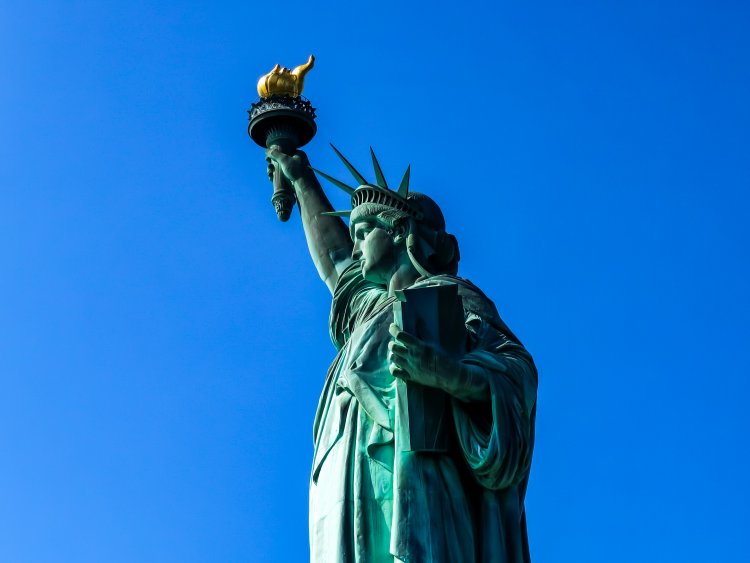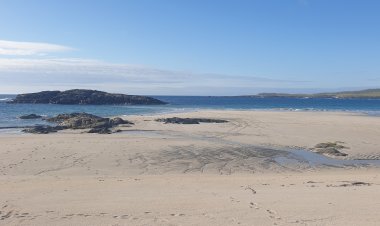Scotland and Independence — A View From America

I’ll begin with an observation that may surprise: the matter of Scots independence commands a fair degree of attention in the United States, at least among a globally informed public. I believe that there are three reasons for this. First, ethnic identity and origins have historically been significant for Americans, and Scottishness [sometimes “Scots-Irishness”] is no exception.
I recall in 2013 hosting First Minister Alex Salmond for a luncheon address at the Carnegie Council for Ethics in International Affairs in New York, where I was a Senior Fellow. Salmond regaled the sophisticated, business and scholar audience with a talk that would have won over an initially skeptical audience into a solid majority for independence, and he began with an anecdotal reflection: he recalled that in his first visit to the United States he had been told upon arrival that some ten percent of Americans claimed some degree of Scottish ancestry. About halfway through his trip, estimates had risen to 15-20 percent, then 25 percent. “I should have stayed a while longer”, he mused, “we would have been a majority!”
Secondly, there is the matter of Brexit. The more worldly of my fellow Americans [I became a U.S. citizen in 1999] were frankly bewildered by the vote to leave the European Union. I live in a community comprised of mainly retired business/industry, academic, diplomatic professionals and so I became the dubious expert to respond to the “What on earth happened?” question. Moreover, it did not escape their attention that Scotland had bucked the UK trend by voting 62-38 percent Remain. Putting these two pieces of data together, a Scottish agenda that calls for a second vote on independence, to be followed by application for EU membership, carries some weight of opinion across the United States.
The fact of the matter is that Brexit, and the unholy mess it has wrought [and despite Johnson’s breezy “Be of good cheer”, there will be adverse consequences, economic and otherwise] has raised awareness of, and support for, an independent Scotland.
Thirdly, there is the fact that the face of “nationalism”, as both concept and reality, has changed, in Scotland and beyond. For much of the post-World War Two generation, nationalism was, for sophisticated observers, simply distasteful if not outright noxious, xenophobically inward-looking; it was fashionable to turn up one’s discerning nose at it. In the twenty-first century, a century of globalization, we see that the inexorable impulse to an ever more connected world has—perhaps paradoxically—brought with it a renewed sense of national identity. Consider that in 1945 there were some 30 independent nations in Europe; now there are 50, including 27 in the EU.
Growing up in the Stirling area in the 60s, and even into my years as a student at St. Andrews, I remember the derogatory and dismissive sneer at ScotNats as “Tories in kilts”. This has changed, and much for the better, as has Scotland, at least to a returning expat. The entire tourism industry has been revolutionised over the past half century, as has the recognition and commemoration of our history, its heroes and heroic places. Most importantly, with this has come, I believe, a greater sense of self, of one’s identity, one’s Scottishness. It is, if you will, the new nationalism.
While some of the old parochialism remains, to be sure, with the identity evolution has come another change: the new nationalism emphasizes [to a degree greater, I believe than other parts of the UK] what Jean-Jacques Rousseau described as the “social contract”, a commitment to community including a willingness to be taxed at a level to fund social programmes adequately and humanely. It is the very definition of a political legitimacy missing in the United Kingdom in the 40 years since Thatcher [yes, as a former Labour activist and campaign manager I include Blair and Brown’s “New Labour” in the indictment]. As the New Statesman put it in its lead opinion piece of its 20-26 November issue: “Tory Eurosceptics have long relished the prospect of a UK parliament denuded of the social democratic influence of Scotland.” In this sense, and, I would argue, in others, Scotland is closer to the Scandinavian countries than the south of England — in temperament, closeness to the land, acute sense of history [does the average English heart throb to the Magna Carta as a Scot’s does to the Declaration of Arbroath? Just a thought.]
What we have in Scotland is what a good friend, Anatol Lieven, has described in his recent book “Climate Change and the Nation State” as “civic nationalism”, as opposed to mere “ethnic nationalism”.
[An apt illustration of this is the 2014 independence referendum, open to all residing in Scotland, not just native Scots, and excluding {alas!} us expats].
Finally, what is significant is the broad spectrum of Scots who support and indeed wrote for independence—thought leaders such as Tom Devine, Tom Nairn, Alan Cumming, Liz Lochhead, Val McDermid, Alasdair Gray, Neal Ascherson and Robert Crawford, and even some international powerhouses such as Noam Chomsky and Joseph Stiglitz.
Balancing these public intellectuals are what we call in the States the “Average Joes”: it is no coincidence that the greatest pluralities for “Yes” in 2014 [and, I believe, for “Remain” in 2018] were to be found in Glasgow and Dundee. As my good friend Kenny MacAskill put it in a message in 2014, “the schemes are alive”. Tartan Tories, farewell!
All this rings loud, clear and perhaps ironic for a Scots-American who is emerging from an odious Presidential election in which societal divisions were laid starkly bare. The richest and most powerful nation the world has ever seen is riven to the point where talk of a “second civil war” is not thought of as fanciful in certain quarters. Mr. Trump played an ultranationalist card to the full—and garnered 74 million votes as a result—behind President-elect Biden, the largest tally in U.S. election history. Simply put, Trump is gone [for now] but Trumpism is not.
The contrast between big America and little Scotland is not at all intended to suggest that this expat looks home with rose-coloured spectacles: to be sure, with soaring drug deaths, something of a crisis in education and missteps and poor judgment in handling the pandemic, the social contract may need some fresh paper and ink, including new leadership in Holyrood. But what resonates for this expat is that while, to use Professor Tom Devine’s felicitous phrase, the Scots over the centuries have been “leaders in mass emigration”, we also invoke the words of that other great Scot, Tom Nairn, who observed that “the least home-bound people on earth have generated the most home-bound and nostalgic ideology of Heimat.” With a civic purpose and commitment, it is an enterprise to admire.
What's Your Reaction?













































